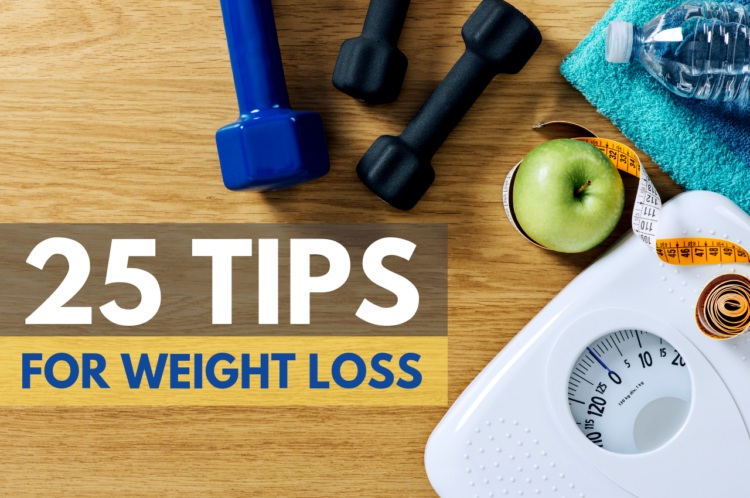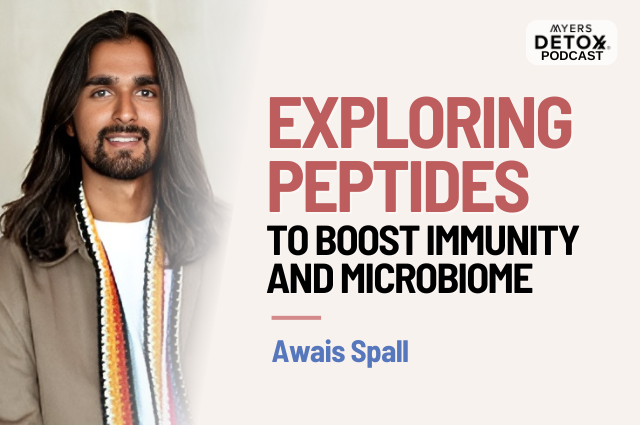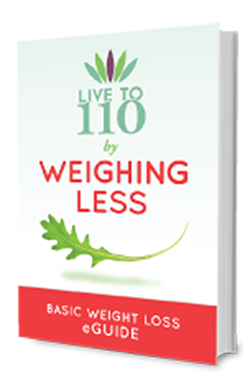There are a lot of tricks to weight loss. Eating a healthy diet is merely one aspect of weight loss. Many eat healthy and fail to lose weight because they are missing a few key factors that could be sabotaging their weight loss efforts. Try these 25 weight loss tips and I bet you’ll shed those pounds!
A few factors include optimizing your adrenal and thyroid function, hormonal imbalances, chemical toxicity, malnutrition, food allergies, stress, and intestinal infections. The only way you can find the best way to lose weight for you personally is through trial and error, with a few basic healthy guidelines.
1. Do You Eat Healthy? Be ready and willing to reevaluate your eating habits. According to a survey of 11,000 people conducted by Thomson Medstat, 75% of obese people believe they eat a healthy diet. Upon further analysis, their diet is invariably filled with high glycemic foods, unhealthy fats, sugars, low protein, and constant snacking; in other words, the perfect recipe for obesity. Evaluate if you are eating healthy by comparing your diet to my Modern Paleo Diet.
2. Avoid One-size-fits-all diet Programs. No one diet works for everyone. Every person should have a different diet tailored specifically to his or her own biochemistry. This is why you will find that a diet that works great for one person is not working for you. Get to know your body and see what foods, what exercise, and what lifestyle factors positively impact your weight loss. If it’s not working, do something different. I don’t like programs like Jenny Craig or Weight Watchers, though they do offer good support, because they are pushing processed foods that push you into malnutrition. You are doomed to fail when your body is starving for nutrients.
3. Think 90/10 diet. This means eating 90% of what you should be eating and 10% of what you want or what you should NOT be eating, i.e. sweets, sugary sodas, simple carbs. Better yet, have one cheat meal a week or one or two small desserts a week and still get results. The better you do, the faster you lose weight! I tend to eat good all week and reserve my cheat day for Sunday. Do what works for you.
4. Eat Only When Hungry. Learn to listen to your body and what it needs. Most people who overeat respond to external cues, i.e. enticing food, instead of internal cues, i.e. the feeling of fullness. Don’t eat just because food is plentiful or available. Eat only when your body tells you it needs fuel and stop eating when you are 80% full.
5. Stop Eating When 80% Full. It takes 20 minutes for your full stomach to register with your brain. If you eat fast and eat until you’re 100% full, twenty minutes later you’ll feel bloated, nauseous, and overly full. Sound familiar? Even if you eat healthy food, but eat too much, your body will release insulin and you’ll put on the pounds.
6. Listen to your Body. Listening to your body entails learning to stop when you feel full and eating foods it is craving (as long as it’s healthy). Desire for a particular food is the main way your body tells you what it needs nutritionally. Cravings for pizza or cake are not cravings for nutrients your body needs, but cravings for carbohydrates, likely from a previous carbohydrate binge that has resulted in low blood sugar. Or they are cravings for emotional reasons, to increase feel good neurotransmitters like serotonin or dopamine. To learn more about this art, read my blog Eat by Listening to Your Body.
7. Calories. For weight loss, the minimum number of calories you should eat should be between your ideal weight x 10 (i.e. 150×10=1500) and 1800 calories per day. The max number depends on your height, weight, and activity level. Heavier people or more active people will need more calories. Most fast food meals contain between 1200-2000 calories or more. Of course, fast food is not on the Modern Paleo Diet. Frankly, I wouldn’t bother counting calories in favor of listening to your body and eating only when you’re hungry. It’s a lot of work – and impossible to count the calories in a homemade dish with multiple foods! But I had to add this section for those die hard calorie counters! You know who you are!
8. Eat the Right Kind of Calories. Even if you eat 2000 calories or less a day you can still gain weight if the calories are white foods (sugar, white rice, white flour pasta, white potatoes, white bread). You can also gain weight if your diet is too heavy in complex carbohydrates – don’t think you can go crazy with these ‘healthy’ carbs either. These foods cause your blood sugar to spike, which results in insulin secretion. Insulin is the hormone that signals your body to store fat. The more carbohydrates you eat, the more insulin you secrete, the more fat you store. The more insulin you secrete, the faster you wear out your pancreas and are on the road to diabetes. Some people are particularly sensitive to carbohydrates and have to watch their intake.
9. Don’t Give Up. If you mess up, just do better tomorrow. Don’t beat yourself up. You will get better and better at improving your diet and eating. Any skill, including learning how to eat better, comes with practice. I’ve been trying to cut out sugar for years!! But I’m getting better and better. The longest I’ve gone without sugar is four months. I NEVER though I would ever be able to achieve this. It takes time and dedication to implement change. Commit to constant learning about how to eat healthy and lose weight, even if it’s just a few minutes a day.
10. Eat Structured Meals. How many meals you eat a day is dependent upon your body type, diet, and activity level. For most, it is best to eat one to three meals a day with no snacks. Athletes may need three meals a day plus snacks in between. I don’t necessarily subscribe to the popular six small meals a day concept many weight loss programs promote. I don’t think our bodies were meant to be constantly digesting food. Experiment and do what works for you. Eating three meals a day is something you can easily do for the rest of your life and will ensure compliance and success. Eating six meals a day may increase your metabolism, but it’s not practical for most people. Do what works for the long-term. More importantly, listen to your body and don’t eat if you’re not hungry.
11. Eat Every 4-5 Hours. This keeps blood sugar even. If your blood sugar drops too much, i.e. you wait too long to eat, you’re more likely to binge. If you eat too much, your blood sugar will spike, then quickly drop too low, causing you to think you’re hungry and want to eat again too soon. This is the vicious cycle most people experience. If you eat too many carbohydrates, usually in the form of white foods (sugar, white rice, white flour pasta, white bread), you will be trapped in the blood sugar spikes and dips cycle. Eating every 4-5 hours works for some but not all. If may be a good idea if you’re new to Paleo and your body is still burning carbs for energy. Once you’ve trained your body to burn fat you can go longer without eating and will not need to eat every 4-5 hours.
12. Don’t Eat 3-4 Hours Before Bedtime. Anything you eat, even healthy food, a few hours before bedtime causes a surge in insulin and causes you to gain weight. Not eating after dinner induces a sort of fast. I don’t eat from 6pm to 8am the next morning. This gives my body 14 hours to detox, repair, and burn fat. If you eat after dinner, your body will burn that food for energy and never kicks into fat-burning mode for energy. Ideally, try to get your entire food intake in an 8-10 hour period. The rest of the time you’ll be burning FAT.
13. Water. Many times when you’re craving foods, you’re really just thirsty. You must drink spring or filtered water as tap water can be contaminated by up to 300 chemicals, including medications, parasites, rocket fuel additives, pesticides, etc. It’s nasty stuff. Remember that all bottled sodas, teas, and beer are made with this toxic tap water. Aim to drink 3 liters or quarts of spring water per day to ensure you’re hydrated and effectively flush toxins from your body. Some people will need more, some less. Try to drink the most water in the beginning of the day so you’re not gulping it down at dinner or before bed, which will interrupt your sleep to use the restroom. If you wait until you’re thirsty to drink, you’re already dehydrated. I’ve found the only way to ingest 3 liters of water a day is to drink it at every meal. And drink it when I wake up. And always have a water bottle with me. And always be near a bathroom. Sorry! This is the cost of being healthy.
14. Juicing. Juicing has powerful weight loss effects. Start with one green juice every day. Think wheatgrass, kale, spinach, celery, cucumber, carrot, parsley, lemon, green apple – whatever you like. Fruit juice has too much sugar. Save it for the occasional treat. Avoid bottled juice – it is just sugar water and has lost much of its vitamins and enzymes. You must drink fresh juice within 30 minutes. Vegetable and fruit juices are packed with vitamins, minerals, living enzymes, antioxidants, and phytochemicals. Fruit and vegetable juices are the cleansers, energizers, builders, and regenerators of the human system. The absorption rate of juice is 99%, whereas, even the best human digestive system in the world is only able to absorb 40% of the nutrients from whole foods. It is difficult for our bodies to break down the cell walls of plants to obtain their nutrients. By adding live juices to one’s diet as a daily routine, you supply the body with easily absorbable nutrients.
15. Eliminate Unhealthy Fats. You’re likely due for an oil change. You must cut back on unhealthy fats to lose weight. Unhealthy fats cause inflammation that is the underlying cause of obesity. These bad fats include vegetable oils (olive ok), trans fats, partially hydrogenated oils, fried foods, margarine, oil in processed foods, etc. You NEED healthy fats. The fat-free craze started from the idea that if you eat fat you’ll get fat. That is so 90’s. Nothing could be further from the truth. You must eat fat to be healthy, as fats are in every cell of your body and your brain is 60% fat. Eat organic grass fed meats, meat and fish broths, fish, fish oil supplements, raw full-fat dairy, raw organic butter, organic eggs, nuts, nut butters, coconut oil, etc. For more information on healthy fats and which fats to avoid, see the Modern Paleo Diet.
16. Sleep 7-8 Hours a Night. Naps are great, too! Sleep metabolizes stress hormones like cortisol. Studies show that people who don’t sleep enough eat more and gain weight. When you don’t get enough sleep, your levels of cortisol increase, which increases your appetite and causes you to eat more. Remember, increased cortisol means increased insulin which signals your body to store fat. Not getting enough sleep increases the secretion of grehlin, the hormone that tells your body to eat. Not getting enough sleep decreases the secretion of leptin, the hormone that signals your body that you’re full. Sleep is essential to health and a healthy waistline.
17. Exercise. Exercise metabolizes stress hormones (less cortisol means less insulin and fewer fat deposits) and keeps blood sugar even. While exercise does burn calories and keeps you from putting back on pounds/kilos you lost, it should be used in moderation, with time for rest in between work out days. For info on the best and most effective way to work out in the least time, see the article Peak Fitness Exercise Benefits. It’s impossible to burn off a high calorie bad diet with exercise. The secret to a healthy weight is your diet. A healthy weight is 60-70% diet. But you still have to workout!
18. Reduce Stress. Reducing stress to reduces cortisol and insulin spikes, which tell your body to store fat. Do yoga, exercise, massage, walk, meditate, do deep breathing exercises, or whatever relaxes you. Learn to say no. Take time for yourself. Slow down. Studies show that stress is one of the main factors in obesity. When you’re stressed your body finds balance in the calming effects of food – particularly the fat, sugar, salt combo, which calms your nervous system.
19. Break Food Cravings. Food cravings can be broken in three weeks. You must stop eating the offending food for three weeks completely to break the craving. People tend to crave what they have eaten recently. If you stop eating it, your craving for a food will begin to fall away. You will be amazed when you won’t crave your favorite cheat food if you stop eating it for three weeks! Mine is chocolate! For more information on food cravings and proven ways to address them, see my blog Kick Your Craving’s Butt! You can also use an interesting technique to eliminate cravings called the Emotional Freedom Technique.
20. Keep a Food Journal. Studies show that people who keep a food journal lose more weight. Log all the food you eat. Identify when you’re about to eat due to negative emotions and write about what you’re feeling. This may help you to avoid the temptation and vent your negative feelings rather than eating them. Journaling will also help you identify foods that make you feel poorly after eat them and avoid them in the future, i.e. foods to which you have an allergy or sensitivity.
21. Lack of Primary Foods. Primary foods fill your life with satisfaction, but have nothing to do with food. When one is satisfied with their life on many levels, they aren’t tempted as much by food and don’t need food to fill them up. Being dissatisfied with a relationship, being bored, stressed, uninspired by a job, having an inappropriate exercise routine (too much, too little or the wrong type), or lacking a spiritual practice may all cause emotional eating. Eating can be used as a substitute for entertainment or to fill a void of insufficient primary food.
22. Manage Your Emotions. You must learn to manage your emotions to lose weight long-term. It is not enough to know how to eat healthy. Most people know what healthy food is, yet they are compelled to go through that drive through again and again. They reach for the donut at work or find themselves in front of the snack machine when they’re not hungry. This is due to our biological drive to eat food for survival, unconsciously repeating developed patterns, and attempting to manage our emotions. Awareness of what drives you is the first step. Acquiring tools to stop the vicious cycle is the next.
- The End of Overeating by David Kessler
- Women, Food, and God by Geneen Roth
- Emotional Eating on Helpguide.org
- Bring your Life into Balance Toolkit
- KarenKoenig.com
23. Hormonal Imbalance. Estrogen dominance can be a major factor in encouraging the body to store fat. Estrogen dominance happens when you have to high a ratio of estrogen in relation to progesterone. This can happen even if you’re menopausal and have very low levels of estrogen – as long as it’s not the proper ratio of estrogen to progesterone. For more information, see my blog Estrogen Dominance Syndrome. Estrogen dominance can easily happen if you have adrenal fatigue, as the adrenals produce these sex hormones. For more information, see my blog Epidemic Adrenal Fatigue.
24. Amino Acid Supplementation. Your body’s chemistry is more powerful than your willpower. This is why many people fail at diets. When you are low on brain neurotransmitters like serotonin, dopamine, or endorphins, you may experience depression, anxiety, and mood disorders, while your body experiences cravings to eat foods that increase the neurotransmitters and feel better. Some people are genetically predisposed to have lower neurotransmitters. Others, have low levels due to poor diets, namely diets low in high quality protein. Amino acids are the building blocks of the brain’s neurotransmitters. Without adequate protein, like on vegetarian, vegan, or junk food diets, your body does not have the raw materials it needs to make serotonin or dopamine. Ironically, low neurotransmitter levels can cause you to turn to sugar and carbohydrates for relief, exacerbating your condition further. For example, when we ingest sugar or carbohydrates, insulin is released and clears all the sugar and amino acids out of the blood stream, except for tryptophan, the precursor to serotonin. Tryptophan easily gets in the brain, with no competition from other aminos, and serotonin is boosted temporarily. If you suffer from depression or mood disorders and resultant emotional eating, you may want to focus on supplementing with amino acids before turning to anti-depressants like SSRI’s, which deplete serotonin levels in the long-term. For more information on how to properly supplement with 5-HTP to produce serotonin, tyrosine to produce dopamine, L-glutamine to control blood sugar, et al, see the incredible website of Julia Ross and take the Mood Type Questionnaire. Her book, The Mood Cure, talks about amino acid supplementation. Her book, The diet Cure, talks about how profoundly diet can affect your mood. Since supplementing with the aminos, my sugar cravings have all but disappeared and my mood has improved dramatically. When you have adequate neurotransmitters, you don’t crave food to regulate your moods.
25. Probiotics. Health and a healthy weight depend upon good digestion and a healthy gut. If your intestines are not in good health, you will have malabsorption of nutrients, resulting in your body crying out for nutrients in the form of food cravings. Most people have an overgrowth of bad bacteria in their gut. This is evidenced in frequent UTI’s and yeast infections, as your urinary and vaginal health reflect the bacteria in your intestines. supplement every day with probiotics, fermented foods like kim chee or sauerkraut (must be RAW – heat kills probiotics), or drink fermented drinks like coconut water kefir. Soaring serotonin levels also depend upon a healthy gut, as 95% of serotonin is made in the gut. You’ll find the best probiotics on the market in the Myers Detox Store.
Have any of these tips helped you to shed the pounds or kilos? Have I left anything out? Tell me your story by leaving a comment below.










